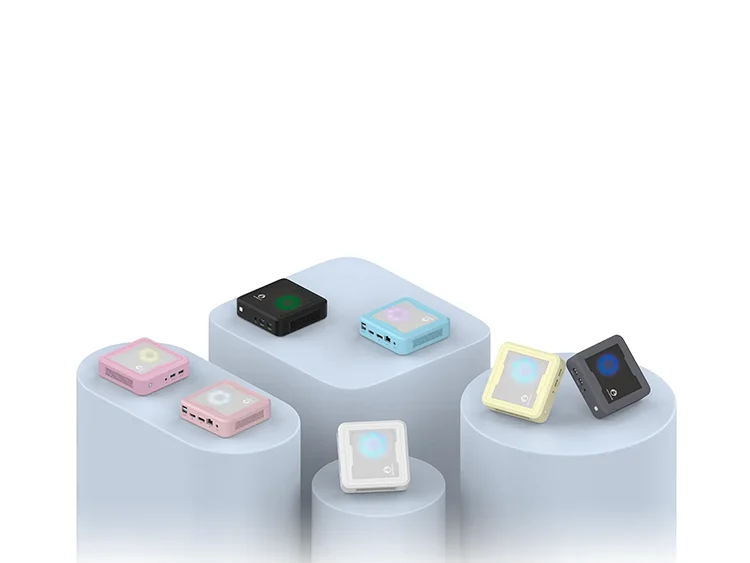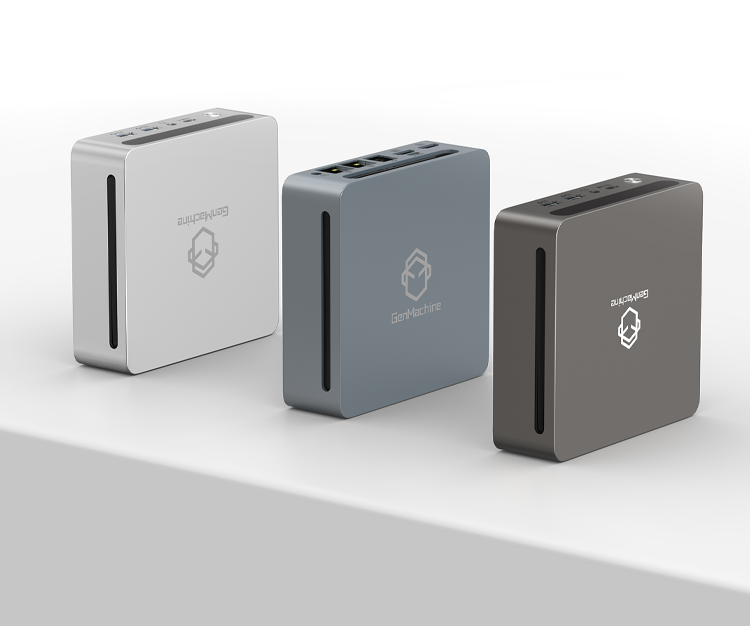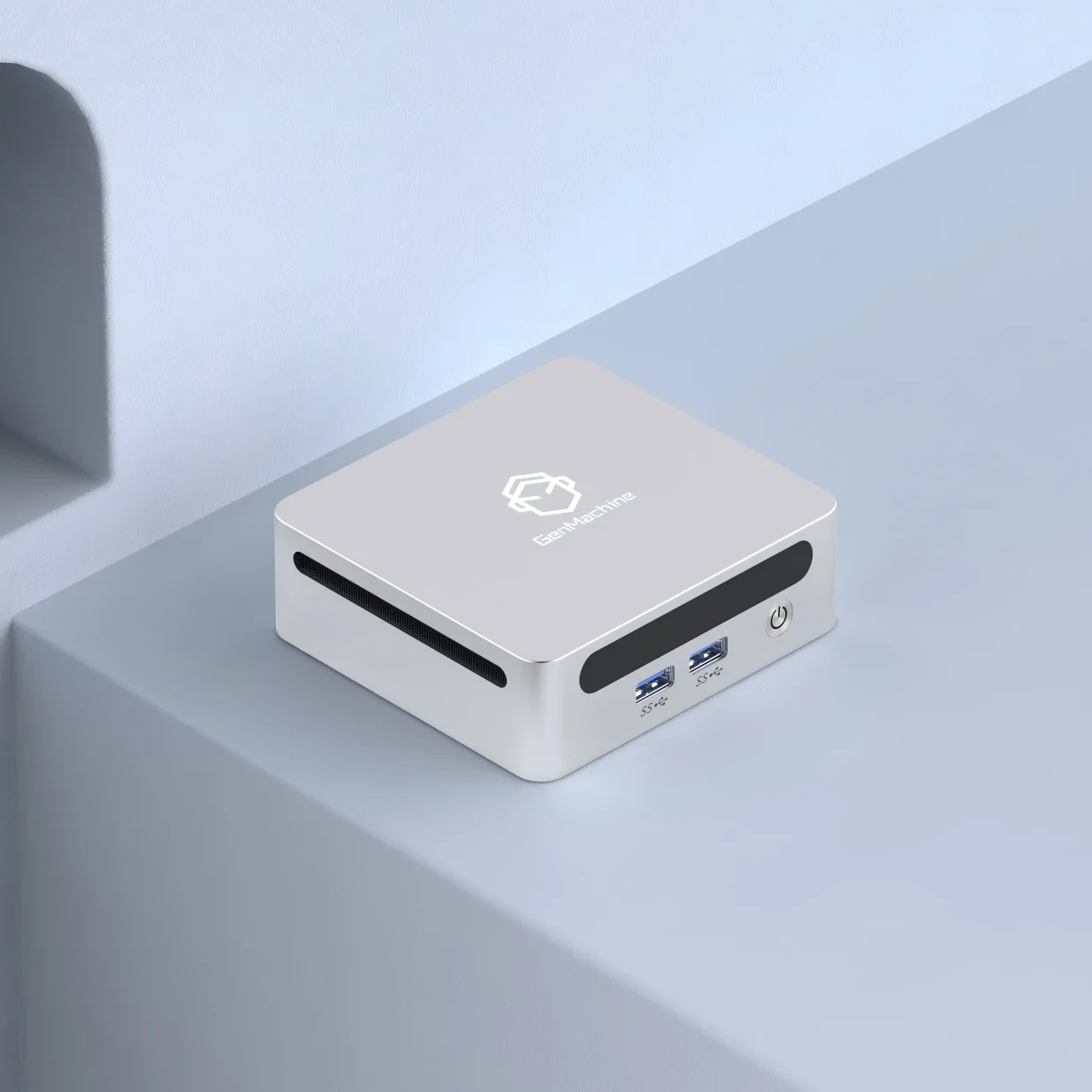The world of desktop computers isn’t just about massive, glowing towers anymore. For years, the “mini PC” category was, let’s be honest, a bit of a compromise. You got a tiny box that was great for basic web browsing or digital signage, but it would choke on anything more demanding. Then, AMD’s Ryzen processors entered the small form factor scene, and the game changed.
These aren’t just scaled-down office machines. A modern Ryzen mini pc packs a processing punch that feels disproportionate to its size. But is it the right choice for everyone?
It seems the appeal of these little powerhouses is growing, but they truly shine in the hands of specific users. They fill a very important gap—the one between a low-power “net-top” and a full-sized, power-hungry desktop. So, let’s look at the profiles of users who are, from observation, a perfect match for an AMD-powered mini computer.
The Core Difference: The APU Advantage
Before diving into who it’s for, we have to understand why. The secret sauce in almost every compelling Ryzen mini pc is the APU (Accelerated Processing Unit). This is AMD’s term for a chip that combines powerful CPU cores (the “brains”) with surprisingly capable Radeon graphics cores (the “visuals”) all in one.
For a long time, integrated graphics were an afterthought. They could run your operating system and play a YouTube video, but not much else. AMD’s approach, particularly with their 5000, 6000, 7000, and 8000-series mobile and G-series desktop chips, was different. They integrated graphics that could actually handle 3D workloads. This means decent gaming performance and strong media capabilities without the cost, heat, or physical space of a separate (discrete) graphics card.
That’s the magic, right there. And it directly informs who benefits most.
Differences Between Normal CPU and AMD APU
| Comparison Item | Regular CPU | AMD APU |
|---|---|---|
| GPU | Requires a dedicated graphics card | Integrated Radeon graphics |
| Cost | High (needs both CPU and GPU) | Low (two-in-one design) |
| Power Consumption | Relatively high | More energy-efficient |
| Performance | Strong CPU but needs external GPU | Balanced performance with high cost-effectiveness |
| Suitable Devices | Desktops, high-end laptops | Ultrabooks, Mini PCs, handheld consoles |

Profile 1: The Home Office Power User
This user is the backbone of the remote work world. They live in spreadsheets, have 30 browser tabs open (we’ve all been there), and spend their day in video conferences. They need a machine that is snappy, reliable, and, most importantly, doesn’t clutter their desk.
A Ryzen mini pc is often a perfect fit. A modern Ryzen 5 (like mini PC with R5 5800H APU) can juggle all those tasks without breaking a sweat. Where it really pulls ahead of some rivals is in multi-monitor support. Many of these units can easily drive two, or even three, 4K displays. For a stock trader, a programmer, or a multitasking marketer, this is a huge win in a box you can hold in one hand. It just feels faster than older, quad-core mini PCs when you’re really pushing it.
Profile 2: The Space-Conscious Student
Think about the average dorm room or small apartment. Desk space is an absolute premium. A student needs a “do-it-all” machine. It has to be a serious tool for writing papers and running research software, but it also needs to be an entertainment center.
This is where that APU advantage becomes critical. After a long day of class, that same small box can fire up games like League of Legends, Valorant, Minecraft, or Rocket League and run them smoothly at 1080p. Some modern APUs (like those with RDNA 2 or RDNA 3 graphics, such as the 680M or 780M) can even handle older AAA titles like Shadow of the Tomb Raider or GTAV at respectable settings. For a student on a budget who can’t afford both a laptop and a gaming console, a Ryzen mini pc is a fantastic compromise.
Profile 3: The Casual Gamer & Emulation Enthusiast
Let’s expand on that gaming idea. There’s a huge group of people who love to game but are put off by the cost and complexity of a full “battlestation.” They don’t need to run Cyberpunk 2077 on “Ultra” settings. They play indie games on Steam, enjoy co-op games with friends, or are deep into the emulation scene.
For this user, a Ryzen mini pc is a revelation. It’s powerful enough to run a massive library of indie and AA titles. And for emulation? It’s a dream machine. It has more than enough CPU power to handle classic systems and enough graphics muscle to run emulators for systems like the PS2, PS3, and Switch (for a lot of titles) with upscaled resolutions. It’s the perfect, tiny, quiet box to become a dedicated “retro console.”

A Quick Comparison: Where It Fits
| PC Type | Typical Size | Graphics Performance | Best For… |
| Basic Mini PC (e.g., Intel Celeron/N-series) | Tiny | Very Low | Basic web, streaming, digital signs |
| Mac Mini (Apple Silicon) | Small | Excellent (unified) | Apple ecosystem, creative work, general use |
| Ryzen Mini PC (Ryzen 5/7/9 APU) | Small | Good to Great (integrated) | Power users, light gaming, HTPC, value |
| Full Desktop Tower | Large | As high as you want | Hardcore gaming, professional workstations |
But Wait, Who Isn't It For?
To understand who it’s for, you have to know who it isn’t for. Even the best Ryzen mini pc has limitations.
The Hardcore AAA Gamer: If your goal is to play the latest, most demanding games at 1440p or 4K with all the settings maxed out, let’s pump the brakes. The integrated Radeon graphics are amazing for what they are, but they cannot compete with a $600 discrete graphics card (like an NVIDIA RTX 4070). You still need a full desktop for that.
The Extreme Budget Hunter: If all you have is $150 and you just need to check email, a refurbished corporate desktop or a basic Chromebook is still going to be cheaper. The Ryzen mini pc category is about performance per dollar and performance per watt, not the absolute lowest cost.
The Dedicated Apple User: If you’re already locked into the Apple ecosystem (iPhone, iPad, Final Cut Pro), a Mac Mini is probably a more seamless, logical, and (honestly) fantastic choice.
Finished reading? If you’re ready to pick your own Ryzen Mini PC, don’t miss our blog: Top 5 Ryzen Mini PCs of 2025.





